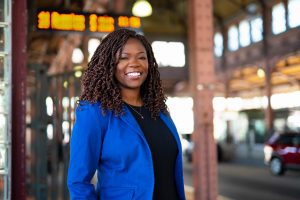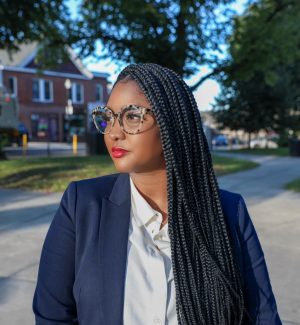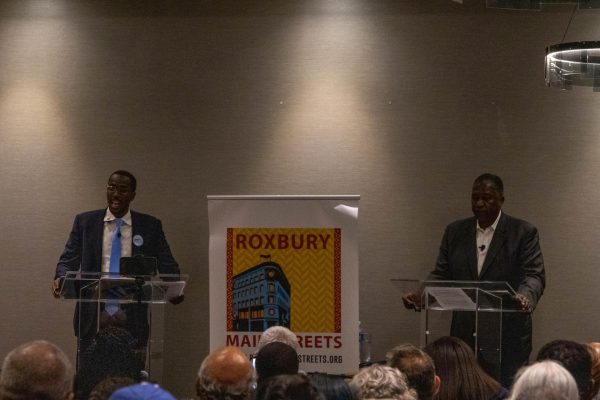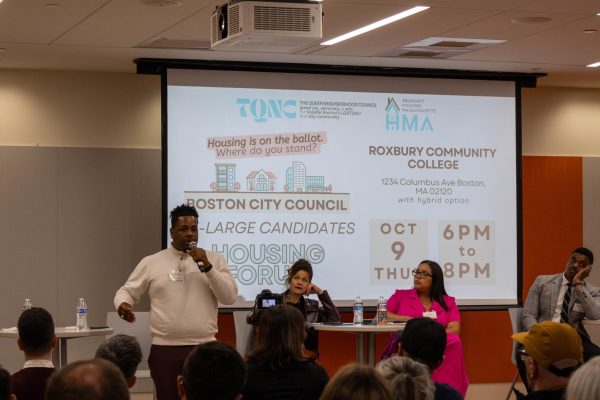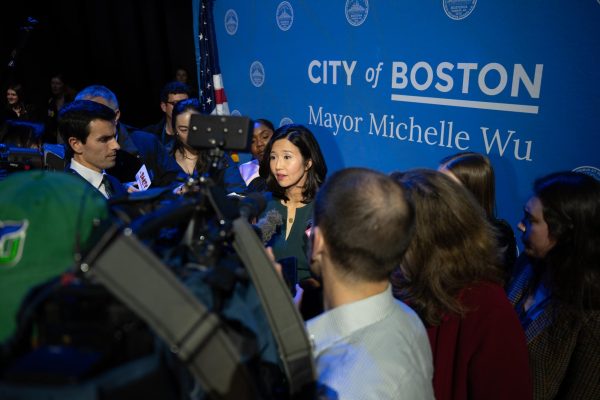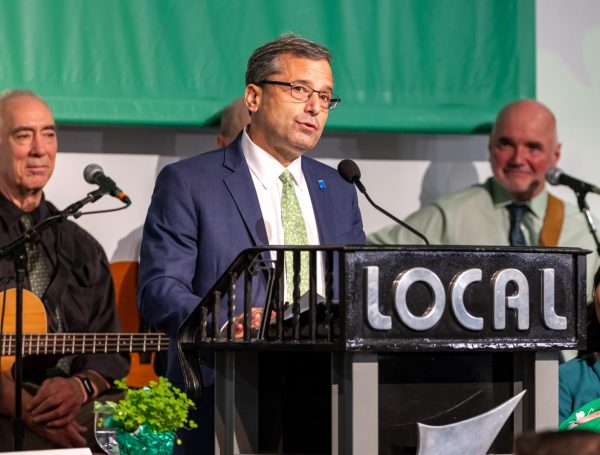City council race: Josette Williams running for District 4
Josette Williams, a lifetime public servant and community organizer, is on a mission to increase voter turnout in District 4.
District 4 encompasses Dorchester, Roslindale and Jamaica Plain and Williams is running against Jacob Urena, Joel Richards, Deeqo Jibril, Nikkia Jean-Charles, Brian Worrell, William Dickerson, Leonard Lee, Trevour Smith, Troy Smith and Trina Ruffin. The incumbent councilor, Andrea Campbell, is running for Boston mayor.
Running to represent the district on the Boston city council, Williams said she wants to send a message to the community that voting is critical to getting the government to serve their needs.
“If your vote and your voice isn’t there, it appears that either you’re not somebody that folks care to worry about or those resources don’t come back to your community,” said Williams. Her campaign is currently running a Reactivate campaign, designed to identify the barriers to voting for members of the community.
Born in Brooklyn and raised in the greater Boston area, Williams was unable to stay in the city due to the high cost of living. Due to the experience, Williams said, she became an advocate for affordable housing and home ownership and if elected, she wants to prioritize programs that would allow residents to stay in the community long term.
Williams currently works in Boston Public Schools as an early childhood educator. She helped start Vital Village Network, a network of residents and organizations to mobilize change in child protection and promote healthy early childhood development, and First Teacher, a community that helps parents and caregivers prepare children for success in school and life.
Currently held by Councilor Andrea Campbell, who is running to become mayor, the District 4 seat is highly contentious as over ten candidates are currently running to represent Dorchester, Jamaica Plain, Mattapan, and Roslindale.
The Scope spoke with Williams about what makes her campaign unique, her platform, and plans for implementation if elected. The following conversation has been edited for length and clarity.
What is your background in and why did you decide to run?
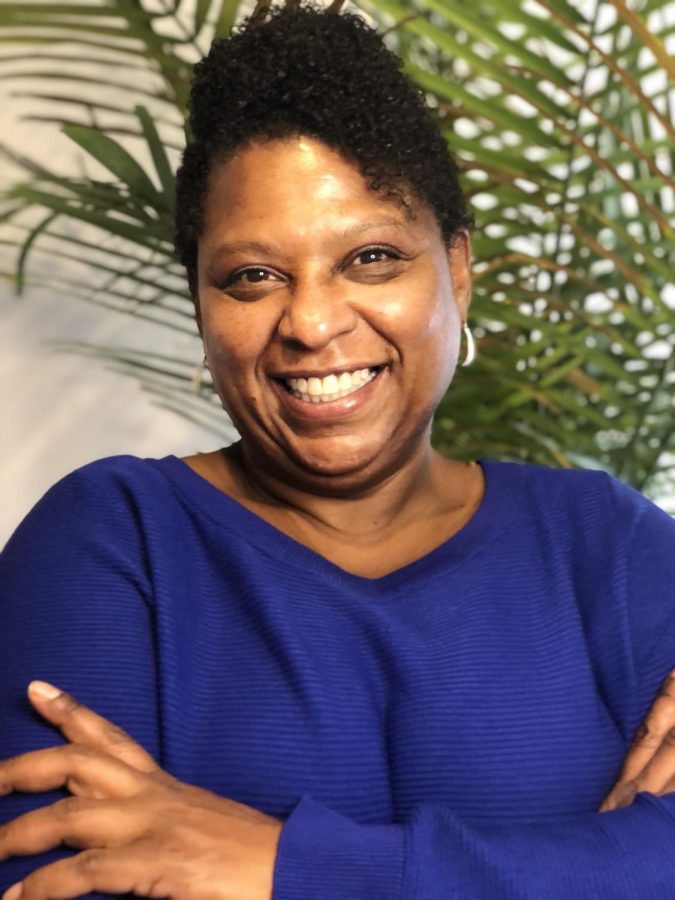
My background is 30 years of being a public servant and a community organizer. I’ve been in the health and human services field, juvenile justice, and then more recently have spent most of my time in Boston Public Schools and early childhood.
I didn’t come from a political background, but [I was] a part of birthing the Vital Village Network, I helped to start First Teacher out of Roxbury. Families and children know me as the pusher of early childhood across the city. Usually you could find me in wings and a tutu with a guitar, really bringing home what it means to be your child’s first teacher and really helping parents understand the role that they play, particularly in those early years, from birth to five around the development of the brain.
These weren’t tools I was given as a first-time parent. I wish I had those tools. Through the process of working in learning, I was able to give back to communities and help them understand what role they play in their child’s development.
For me it’s around building families, building children, and then working in the community to ensure that the social justice part of our work is not just about saying it, it’s about doing it.
What has been your experience living and working in Boston?
Oh, it’s been many years. I pretty much have come up in a city like Boston building a tremendous amount of networks. I don’t always use the word blessed, but I feel like it’s appropriate here. I truly have been blessed in my life where folks have sought me out for work. That’s a beautiful place to [be] in, but I know it’s not a space that a lot of people get to [be] in. Often people struggle tremendously to get work, and work that allows them to survive in a city like Boston. So it wasn’t always attainable for me. I lived in Atlanta for a while, in assistance housing and shelter housing. I had to leave until I could come back to this city and obtain work that allowed me to provide.
What are the most important policy issues on your platform?
The reason why I jumped in here is getting folks to vote in this district. We are seeing very low voter turnout and I don’t care where you live in this country, it is apparent that if your vote and your voice isn’t there it appears that either you’re not somebody that folks care to worry about or those resources don’t come back to your community. If you want the government to take heed to your needs, to your concerns, to your issues, you’ve got to send them a voice.
I think the strongest tool you have is your vote that says: ‘I have civic engagement. I live here. I pay taxes here.’ And then there’s accountability to me living here. For me, that’s number one, really changing my district and getting folks to really increase the vote.
The second is, it’s no surprise that Black and brown communities have struggled under this pandemic. Prior to the pandemic, there were everything from health disparities to inequities that were already deep seated in our communities. If folks can’t even stay in this community, it’s gonna hit this community tremendously hard to think about where people are going, what kind of access they have to survive, and everything from food security to housing assistance. And then most importantly, what COVID has done in terms of loss for families, what that means in terms of jobs and mental health, social, and emotional services for children being isolated for a whole year from friends and family. That’s a huge piece.
For me, the other piece is how do we rethink and reimagine what it really means to have voices at the table who are helping to be a part of the decision-making? I don’t want that to sound like the same message or jargon that’s going around town, but I want it to be really reflective. So when folks use the language, ‘all means all,’ I really mean how do we create a real grassroots organizing movement to learn, understand, and be a part of civic engagement? For me, that big piece is how I get them to the table. There’s what I think needs to happen as a part of just being a part of the community as a resident, who’s lived it, but I want folks in the community to be driving a platform that really reflects them.
I know that may be a little unorthodox, people want me to come in and say, these are all of my top seven to ten things. I’m not coming in here with a solidified message, that these are the things that have to happen. I’m coming in with, ‘I get it. I live it. This is my experience. I know these things are important, but I can’t drive those as a single platform issue. I need you as a community to help me see the larger priorities.’
What are the specific plans and goals that you have for implementing the policy issues that matter to you?
I’ll start with the vote. We started our distribution letter, we put one out last week. To be really inclusive means making sure you have a letter that really reflects all of the languages that are in your community. So the goal is to get that letter to every household in the city, we know everybody’s not on social media. We’re still gonna make phone calls as well, but we’re trying to translate that letter in every language that’s reflected in our community and make sure every household gets it. So that’s hands down number one, the goal to get that vote out.
The second, in terms of recovery, is to ensure that I’m across this city, trying to build networks, sit on boards, be active in spaces like the Black Boston COVID Coalition, Vital Village Network out of [Boston Medical Center], anywhere and everywhere I can be where there’s active participation, making sure residents have a space where they are going to be heard. So not waiting till I get in the seat, but doing it right now. Part of my goal is what can I actively do right now to promote, have people get organized, understand their role so that if and when I’m the person sitting in that seat it will be a natural transition to follow up with a voice to ensure that we go further with things like policy.
If we want folks to be a part of policy, they’ve got to know about it. So having resident cafes, where you have an opportunity to come talk to me to find out things that are being pushed from city hall. How do we look at a policy? What does it say and how does it really impact the community in which you live?
What makes your campaign different from other people running to represent the same district?
From the moment I jumped in, the biggest goal for me was what we’re calling this blue wave. And frankly, Black women have been leading this charge and you know, it’s hard to sit back and not say, ‘how can I be a part of that change or a part of that legacy?’
I think the two great things I bring is this voice that has never been able to tone down, and then this level of passion to really cause change. For those who know me, I am organic. I am someone who’s been able to reach across the aisle long before even thinking about going into politics. It has always been important to me that we thrive as a community through unity and through diversity. As long as they are in your community, they belong.
I want to show how you give somebody else power to their vote when you don’t, and how not voting impacts the rest of our lives. It’s truly violence to the rest of us. I’m on a mission to be a part of that leadership, a part of that change, and a part of that legacy that gets people up and going.
What’s something that you love about the district you’re running to represent and something that you really want to work on?
I love this question because there is so much about my community that I absolutely love. When I say my community it’s so vast, right? From [Jamaica Plain], Mattapan and the trails, to Franklin Field. The fact that I’m running against 10 people, that speaks a lot that there’s a ton of activism here that needs to really be brought into a coalition so that we can drive it together.
When we could get outside, you couldn’t get through a summer without some sort of cultural celebration. People travel here from all over to experience and be a part of that experience. We have a historical presence here and what I’d like to change is the theories that the people in my district, because they don’t vote, it’s not a community that most folks see as a gem. I think we really need to show people that.
Given more resources and ability to sustain ourselves here and to own in our communities, to have home ownership that really links to the incomes in this community, they can raise their kids here. All of this stuff gets layered when you’re able to have the generational wealth.
So for me, it’s about staying. It’s about getting back to work, but with wages that allow you to thrive, wages that allow you to buy housing. Housing that gets built here that allows you to become a homeowner. There should be no reason why a city that you’ve spent your whole life helping to change, [that] you can’t say that this is a place you want to be and stay.
Is there anything that you want to say to our readers that I haven’t asked you about?
We just watched a beautiful ceremony of a swearing in of a vice-president of Black and Asian descent. And often when we watch these incredible moments, one gets through the glass ceiling, but I’m always reminded that that glass fell somewhere. And the rest of us are left here. So it doesn’t always feel like it’s a movement for all of us to get through it. We have to capitalize on the moment of this racial reckoning, the social injustice, the pandemic.
It has enlightened us to how hard it really has been for people to survive. Not only in our cities and our districts, but in our nation. It’s imperative that we really think about what unity means and humanity as an equal partnership to each other. It is possible for us not to worry about where our next meal is coming from. It is possible for us to pay our bills and not just struggle in survival mode all the time. So quality of life for all of us is that we’re tired of ‘change is going to come.’ It has to be that change has come and that we stand behind that collectively as a people.



